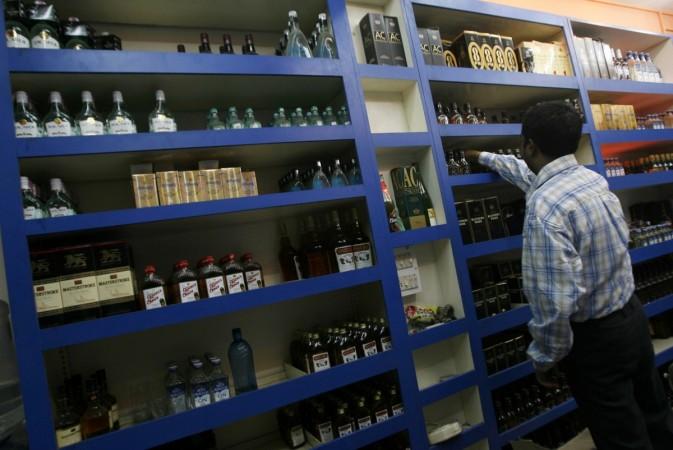
Two alcohol addicts, including an assistant sub-inspector (ASI) of police, died in Bihar following a complete ban on liquor April 5.
ASI Raghunandan Besra could not get his daily dose of alcohol and died at Patna Medical College and Hospital (PMCH), the IBN live reported. Besra was undergoing treatment at PMCH and showed withdrawal symptoms. After his condition deteriorated, the policeman died at the hospital April 7.
He was posted at Kundawa-Chainpur police station of East Champaran district. Besra hailed from Bihar's Purnia district and had joined the force as a constable in 1990.
Another death due to alcohol withdrawal symptoms was at the Katihar Medical College Hospital (KMCH). A 40-year-old man was referred to KMCH from a de-addiction centre.
"When the patient came to the centre, he was gasping for breath. His family members said he had been restless since the day country liquor was banned. He was in a very serious condition. Therefore, we referred him to Katihar Medical College and Hospital," B K Gopalika, nodal officer at the de-addiction centre was quoted as saying by the Times of India.
Bihar became a dry state April 5 as Chief Minister Nitish Kumar announced that all kinds of alcohol would be banned in the state, a decision that left alcoholics in a tizzy.
The Bihar Assembly unanimously approved an amendment to the 1915 liquor bill and passed the Bihar Excise (Amendment) Bill 2016 Friday. According to the amendment, the sale and consumption of hooch was banned from April 1 and anyone violating it could face death penalty.
The state had set up 39 de-addiction centres with 10 beds each, with the exception of Nalanda Medical College and Hospital, which has 25 beds.
The abrupt ban on alcohol has seen people addicted to alcohol, trying alternate ways to get high, thereby developing serious complications.
Nitish Kumar, who had promised a liquor ban during his campaign for the state Assembly elections, said the prohibition law has been welcomed by women and children in the state. However, the law was criticised as "draconian, arbitrary and mala fide" in a petition in the high court. The petition says that by prohibiting sale and consumption of alcohol the law violates an individual's freedom to eat and drink what they want.
















